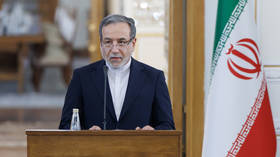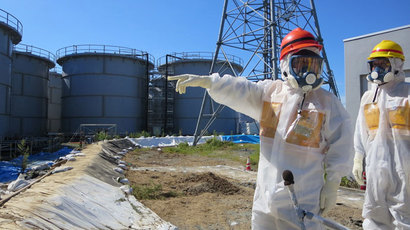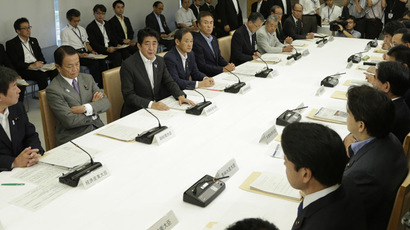Fukushima taboo? Politician draws Japanese Emperor into nuclear controversy
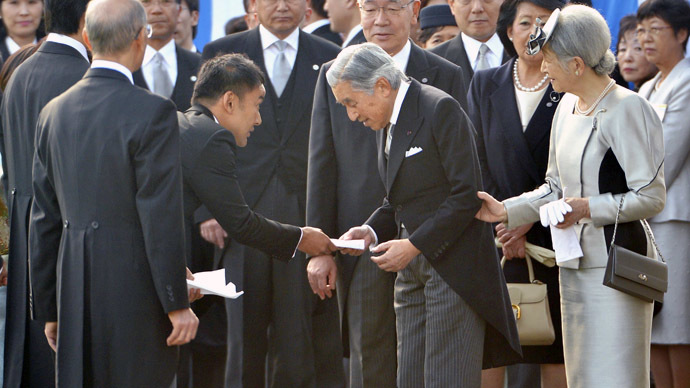
An anti-nuclear lawmaker broke a taboo, drawing heavy criticism in Japan, by handing the Emperor a letter of concern over the issue of the growing Fukushima radiation and the impact on children’s health.
Taro Yamamoto, an independent lawmaker at the Tokyo prefecture in the House of Councilors, the upper house of the Japanese parliament, personally handed the letter to Emperor Akihito during a party at the Akasaka Palace’s imperial garden on Thursday.
The vocal anti-nuclear activist said that he wanted to inform the Emperor “directly” of the crisis at the Fukushima nuclear plant north of Tokyo. The Tohoku earthquake that hit off Japan’s Pacific coast in March 2011 triggered a tsunami that damaged nuclear reactors at the Fukushima Daiichi. Since then the plant has been leaking radioactivity leading to the evacuation of more than 150 000 people. The land surrounding the plant has been off-limits due to high radiation that can cause cancer and other health problems.
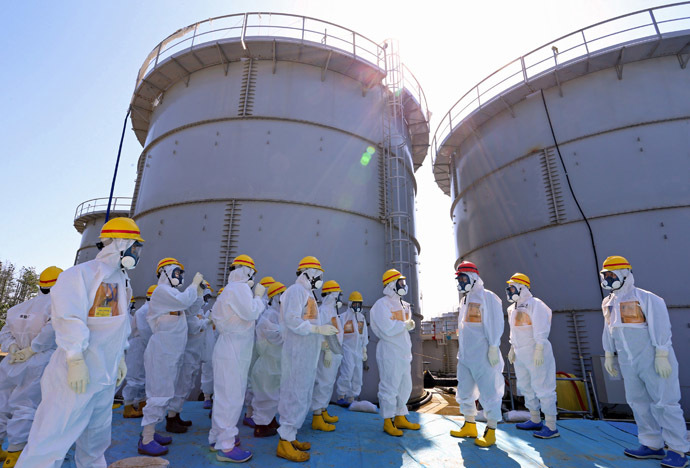
"I wanted him to know about the children who have been contaminated by radiation. If this goes on, there will be serious health impacts," said Yamamoto.
Emperor Akihito inclined his head as he took the letter in his hand but then handed it to a chamberlain, said Yamamoto adding that His Imperial Majesty made no comment.
The politician’s initiative set off a storm of protest in the Japanese media with many saying that his action was inappropriate breaking the “taboo” of involving a member of the Imperial Family in politics.
Some critical netizens called on Yamamoto to resign from parliament calling his action “really low."
Chief cabinet secretary, Yasuhide Suga, also expressed disapproval, telling a news conference, "There is a line for appropriate behavior at such an occasion".
The Emperor in Japan fills a ceremonial role. According to the first article of the postwar constitution, the emperor is “the symbol of the State and of the unity of the people, deriving his position from the will of the people with whom resides sovereign power." While the Japanese parliament - the Diet – remains the highest organ of state power, the emperor usually convenes it. His Majesty also bestows decorations on deserving citizens and receives foreign ambassadors.

The politician’s concern comes as the Tokyo Electric Power Company (TEPCO), the operator of the crippled Fukushima nuclear plant responsible for the decontamination, struggles to cope with the aftermath of the nuclear crisis.
At the beginning of October the combined Cesium-134 and
Cesium-137 readings just outside the damaged No. 2 reactor jumped
to 1,200 becquerels per liter, the highest levels of radiation recorded since
late 2011.
In attempts to tackle the problem, the Japanese government is reportedly considering stripping the Fukushima nuclear operator of the responsibility to decontaminate the devastated station, while handing the issue and decommissioning of reactors from TEPCO to a government-affiliated organization. (link)
Amid rising concerns, UN scientists said that traces of radioactive contamination have been found in rice, and far out in the Pacific Ocean.
Nuclear power expert, Arnold Gundersen, told RT that the health risks are great and continue to increase every year.
“Somewhere between 100,000 to 1,000,000 [people] will over the next thirty years get cancer from this accident...1,000 additional cancers a year from eating fish from the Pacific.”




